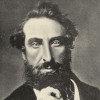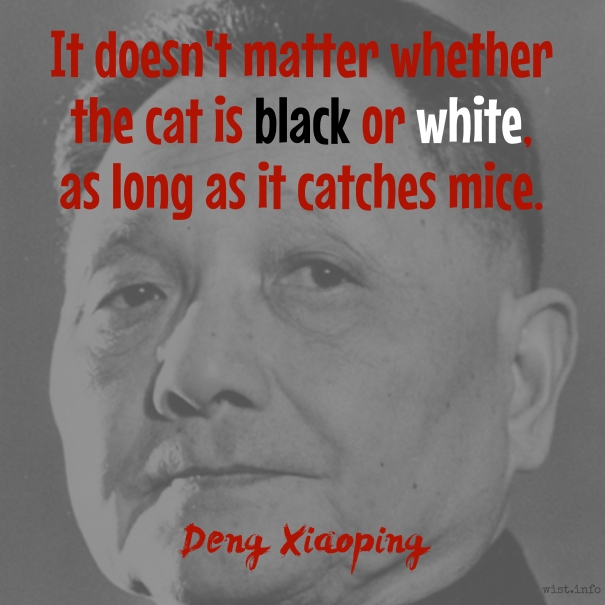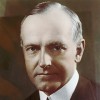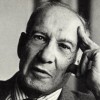Never get a reputation for a small perfection, if you are trying for fame in a loftier area; the world can only judge by generals, and it sees that those who pay considerable attention to minutiæ, seldom have their minds occupied with great things. There are, it is true, exceptions; but to exceptions the world does not attend.
Edward George Bulwer-Lytton (1803-1873) English novelist and politician
The Disowned, ch. 2 [Talbot] (1828)
(Source)
See La Rochefoucauld.
Quotations about:
details
Note not all quotations have been tagged, so Search may find additional quotes on this topic.
Pedantry crams our heads with learned lumber, and takes out our brains to make room for it.
Charles Caleb "C. C." Colton (1780-1832) English cleric, writer, aphorist
Lacon: Or, Many Things in Few Words, Vol. 2, § 20 (1822)
(Source)
People who are too much concerned with little things usually become incapable of big ones.
[Ceux qui s’appliquent trop aux petites choses deviennent ordinairement incapables des grandes.]François VI, duc de La Rochefoucauld (1613-1680) French epigrammatist, memoirist, noble
Réflexions ou sentences et maximes morales [Reflections; or Sentences and Moral Maxims], ¶41 (1665-1678) [tr. Kronenberger (1959)]
(Source)
Present from the 1665 edition. See here for more discussion (English).
(Source (French)). Alternate translations:
They that use to employ their minds too much upon Trifles, commonly make themselves incapable of any thing that is serious or great.
[tr. Stanhope (1694), ¶42]
Those who apply themselves too much to little things, commonly become incapable of great ones.
[pub. Donaldson (1783), ¶38; ed. Lepoittevin-Lacroix (1797), ¶41]]
Those who apply themselves much to little things, commonly become incapable of great ones.
[ed. Carville (1835), ¶35]
Those who bestow too much application on trifling things, become generally incapable of great ones.
[ed. Gowens (1851), ¶42]
Those who apply themselves too closely to little things often become incapable of great things.
[tr. Bund/Friswell (1871)]
Undue attention to details tends to unfit us for greater enterprises.
[tr. Heard (1917)]
Too close attention to trifles generally breeds incapacity in matters of moment.
[tr. Stevens (1939)]
Men too involved in details usually become unable to deal with great matters.
[tr. FitzGibbon (1957)]
People too much taken up with little things usually become incapable of big ones.
[tr. Tancock (1959)]
Those who apply themselves too much to little things, ordinarily become incapable of great ones.
[tr. Whichello (2016)]
Pleasing for a moment is of some consequence; for, if we take care of the moments, the years will take care of themselves, you know.
Maria Edgeworth (1768-1849) Anglo-Irish writer, novelist
Mademoiselle Panache, Part 2 [Helen] (1795)
(Source)
There is of course a clash between ‘literary’ technique, and the fascination of elaborating in detail an imaginary mythical Age (mythical, not allegorical: my mind does not work allegorically). As a story, I think it is good that there should be a lot of things unexplained (especially if an explanation actually exists); and I have perhaps from this point of view erred in trying to explain too much, and give too much past history. Many readers have, for instance, rather stuck at the Council of Elrond. And even in a mythical Age there must be some enigmas, as there always are. Tom Bombadil is one (intentionally).
J.R.R. Tolkien (1892-1973) English writer, fabulist, philologist, academic [John Ronald Reuel Tolkien]
Letter to Naomi Mitchison (1954-04-25)
(Source)
Letter 144 in Humphrey Carpenter, ed., The Letters of J.R.R. Tolkien (1981).
Take then good note of it. Nothing is too small. I counsel you, put down in record even your doubts and surmises. Hereafter it may be of interest to you to see how true you guess. We learn from failure, not from success!
Abraham "Bram" Stoker (1847-1912) Irish author, theater manager, journalist
Dracula, ch. 10, Dr. Seward’s Diary, 7 September [Abraham Van Helsing] (1897)
(Source)
Parents are often so busy with the physical rearing of children that they miss the glory of parenthood, just as the grandeur of trees is lost when raking leaves.
Marcelene Cox (1900-1998) American writer, columnist, aphorist
“Ask Any Woman” column, Ladies’ Home Journal (1945-05)
(Source)
Men use up their lives in heart-breaking political struggles, or get themselves killed in civil wars, or tortured in the secret prisons of the Gestapo, not in order to establish some central-heated, air-conditioned, strip-lighted Paradise, but because they want a world in which human beings love one another instead of swindling and murdering one another. And they want that world as a first step. Where they go from there is not so certain, and the attempt to foresee it in detail merely confuses the issue.
George Orwell (1903-1950) English writer [pseud. of Eric Arthur Blair]
“Can Socialists Be Happy?” Tribune (1943-12-20) [as John Freeman]
(Source)
Nearly all creators of Utopia have resembled the man who has toothache, and therefore thinks happiness consists in not having toothache. They wanted to produce a perfect society by an endless continuation of something that had only been valuable because it was temporary. The wider course would be to say that there are certain lines along which humanity must move, the grand strategy is mapped out, but detailed prophecy is not our business. Whoever tries to imagine perfection simply reveals his own emptiness.
George Orwell (1903-1950) English writer [pseud. of Eric Arthur Blair]
“Can Socialists Be Happy?” Tribune (1943-12-20) [as John Freeman]
(Source)
It doesn’t matter whether the cat is black or white, as long as it catches mice.
In the discharge of the duties of the office there is one rule of action more important than all others. It consists in never doing anything that someone else can do for you. Like many other good rules, it is proven by its exceptions. But it indicates a course that should be very strictly followed in order to prevent being so entirely to trifling details that there will be little opportunity to give the necessary consideration to policies of larger importance.
Calvin Coolidge (1872-1933) American lawyer, politician, US President (1925-29)
The Autobiography of Calvin Coolidge (1929)
(Source)
Often given as "One rule of action more important than all others consists in never doing anything that someone else can do for you" or "Don't do anything yourself that someone else can do for you."
Great merit, or great failings, will make you be respected or despised; but trifles, little attentions, mere nothings, either done or neglected, will make you either liked or disliked, in the general run of the world.
Lord Chesterfield (1694-1773) English statesman, wit [Philip Dormer Stanhope]
Letter to his son, #187 (20 Jul 1749)
(Source)
When the issue is one of Truth and Justice, there can be no differentiating between small problems and great ones. For the general viewpoints on human behaviour are indivisible. People who fail to regard the truth seriously in small matters, cannot be trusted in matters that are great.
[Wenn es sich um Wahrheit und Gerechtigkeit handelt, gibt es nicht die Unterscheidung zwischen kleinen und grossen Problemen. Denn die allgemeinen Gesichtspunkte, die das Handeln der Menschen betreffen, sind unteilbar. Wer es in kleinen Dingen mit der Wahrheit nicht ernst nimmt, dem kann man auch in grossen Dingen nicht vertrauen …]
When a man is in doubt about this or that in his writing, it will often guide him if he asks himself how it will tell a hundred years hence.
Samuel Butler (1835-1902) English novelist, satirist, scholar
The Note-Books of Samuel Butler, “Writing for a Hundred Years Hence” (1912)
Full text.
Trifles make perfection, and perfection is no trifle.
Michelangelo (1475-1564) Italian artist, architect, poet [Michelangelo di Lodovico Buonarroti Simoni]
(Attributed)
The first appearance of this attribution is in C. C. Colton, Lacon: Or, Many Things in Few Words, Vol. 1, § 168 (1820), with no citation as to where he found it (if he did not make it up himself).
















